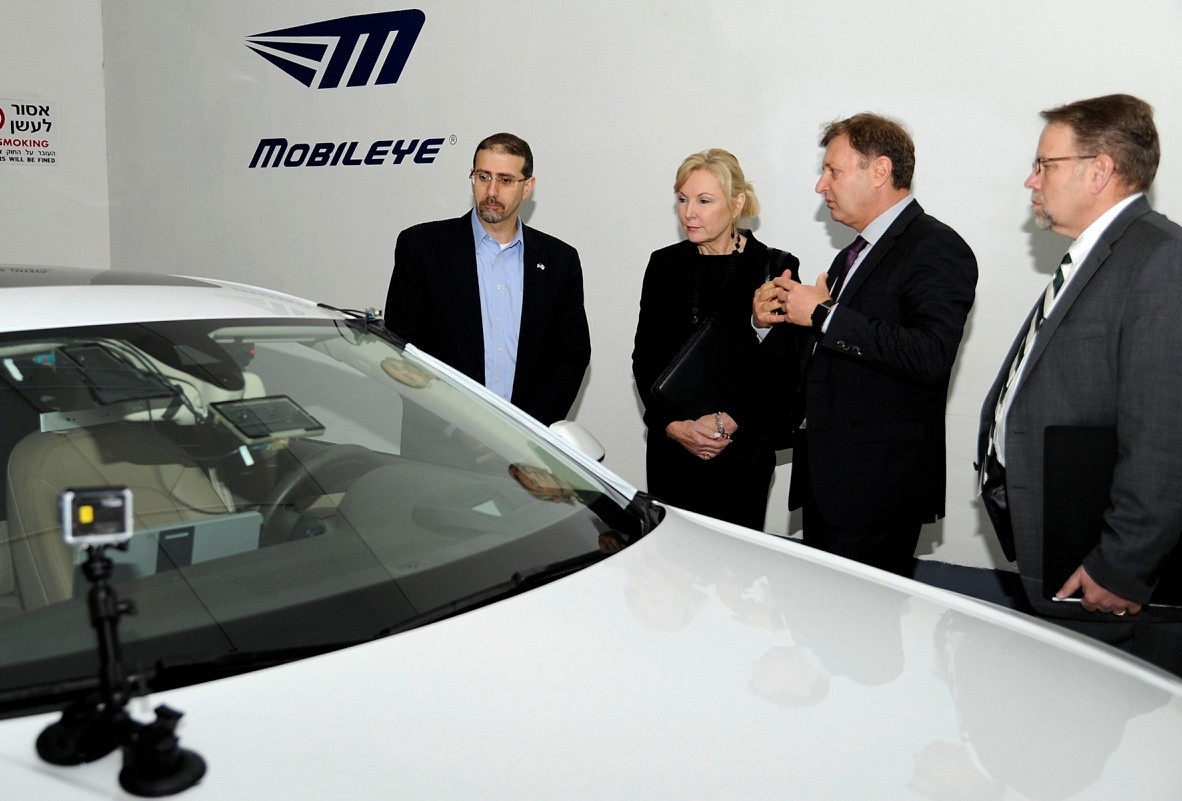Start-up to ramp-up: Israel’s innovation tie
In their 2009 book, “Start-Up Nation: The Story of Israel’s Economic Miracle,” Dan Senor and Saul Singer first captured Israel’s chutzpah-driven culture of innovation. They identified a winning business model that became the gold standard for fledgling companies in Israel: become what industry professionals call a “unicorn”—a start-up that has achieved a $1 billion valuation—by developing groundbreaking first-generation products during a pilot stage and then selling their intellectual properties to multinational companies capable of scaling production to meet global demand.
Recently, though, stunning multi-billion dollar acquisitions have prompted Israelis to rethink what’s possible. Principal among such notable buyouts was computer processor giant Intel’s 2017 record-breaking purchase of the Israeli start-up Mobileye, a high-tech producer of advanced driver-assistance systems, for $15.3 billion.
“Sometimes I’m uncomfortable with the term ‘start-up nation,’” Raphael Gross, co-founder of the Israel Aliyah Fund, an online platform that reconsiders what Israel can offer diaspora Jews, told JNS. “People don’t realize that Mobileye was started nearly 20 years ago at Hebrew University. At what point is a venture no longer a start-up but, rather, a full-fledged company?”
Gross suggested Israelis are seeking to become a “ramp-up nation,” capable of spawning start-ups that can grow beyond nascent developmental stages and become world leaders in their fields.
Accelerators are popping up in cities across Israel to facilitate growth and nurture “ramp-up nation” leaders.
“We saw that we needed to offer more focus and value,” Lion David, founder of Madgera - Startup Hatchery, an accelerator and mentoring hub based on Kibbutz Revivim, told JNS. Madgera’s mission reflects not only changing ambitions among innovators, but also the enhanced faith investors now have in Israeli ingenuity.
“Investors used to want the exit. Now they want the five-to-10-year vision and are willing to invest more,” David said.
Perhaps Madgera’s greatest draw is its location. The accelerator’s distance from fast-paced Tel Aviv removes some of the pressures and distractions that innovators would otherwise face. The fact that Madgera is a kibbutz venture also instills a different culture in the companies it fosters. Participants mingle with their hosts. They bring their families, who enjoy all the rural and communal pleasures kibbutz life offers, such as the pool, gym and dining hall.
“If or when a start-up gets an investment [it] can repay the kibbutz or offer equity,” David explained.
Madgera’s community-driven model speaks to a larger phenomenon that Gross and Shahar Matorin, Israel country manager for Startup Grind, agree is beginning to influence start-up culture. “In the last few years you can see a move toward tech for tech’s sake,” said Matorin.
He described a new economy in which altruistic ventures are on the rise as people look to solve global problems, such as hunger.
Concurrently, new start-ups are raising money not from venture capital firms and traditional middlemen, but directly from communities and families, demonstrating public commitment to social causes.
Time will tell whether the start-up nation can become the ramp-up nation that Gross, Matorin and David envision. In the meantime, it’s clear Israel is reinventing its fundamental approach to innovation.

 48.0°,
Overcast
48.0°,
Overcast 




